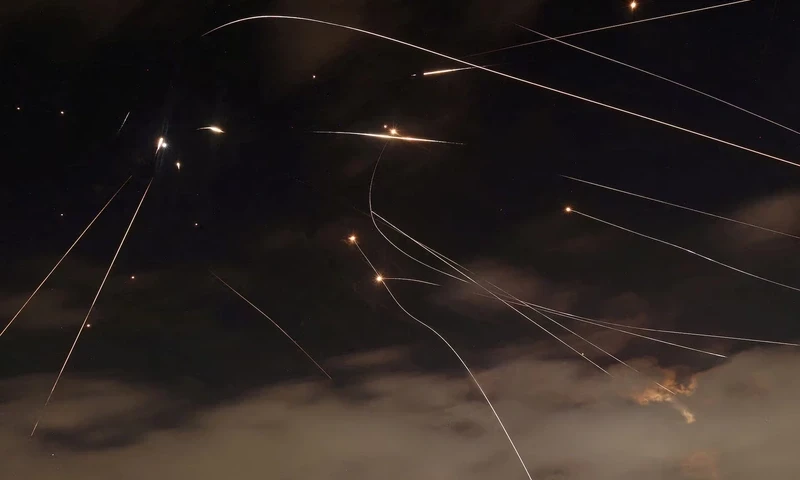The Iran-Israel conflict took a dangerous turn on Monday as Iranian missiles struck Tel Aviv and the northern port city of Haifa. The attacks destroyed residential areas, leaving behind a trail of death and destruction. The world watched closely as leaders gathered at the G7 summit, deeply concerned that this decades-old hostility could spark a broader regional war.
According to Israeli media, five people died and at least 90 were injured in central Israel. Rescue teams rushed to Haifa, where nearly 30 people were wounded. Fires erupted near a power station at the port, prompting urgent emergency response.
In Tel Aviv, residential buildings were hit directly. Video clips captured live missile trails over the city, while loud explosions echoed across both Tel Aviv and Jerusalem. Witnesses told Reuters that multiple blasts rocked urban neighborhoods.
Tehran confirmed it had launched repeated waves of missile attacks. These strikes came in retaliation for Israel’s recent operations targeting Iran’s nuclear and ballistic missile infrastructure. Those Israeli strikes had begun last Friday.
Iran’s Revolutionary Guards released a statement following the attack. It claimed that a new method had been used in the assault, one that tricked Israel’s layered air defense systems into reacting against one another. The statement described the operation as a success, despite advanced Western defense technologies and U.S. military support backing Israel.
Iranian officials noted that this tactic ensured maximum impact on Israeli targets in what they called the “occupied territories.”
Earlier Iranian strikes had already claimed the lives of at least 10 people in Israel, including children. On the other side, Iran reported a far higher death toll. According to Iran’s health ministry, at least 224 Iranians had been killed so far, with around 90% of the victims being civilians.
The Iran-Israel conflict was front and center at the G7 summit, which began Sunday in the Canadian Rockies. World leaders voiced alarm at the growing crisis. German Chancellor Friedrich Merz said the top priorities were to prevent Iran from acquiring nuclear weapons, support Israel’s right to self-defense, stop further escalation, and create diplomatic space.
“This issue will be very high on the agenda of the G7 summit,” Merz said.
U.S. President Donald Trump also spoke about the conflict. Before flying out for the summit, he told reporters, “I hope there’s going to be a deal. I think it’s time for a deal.” He added, “Sometimes they have to fight it out.”
Diplomatic efforts faced serious challenges. Iran told its mediators in Qatar and Oman that it would not consider a ceasefire while it remained under Israeli fire, according to a source familiar with the talks.
As the Iran-Israel conflict intensifies, so does global concern. The situation remains volatile, and hopes for a peaceful resolution seem distant.


